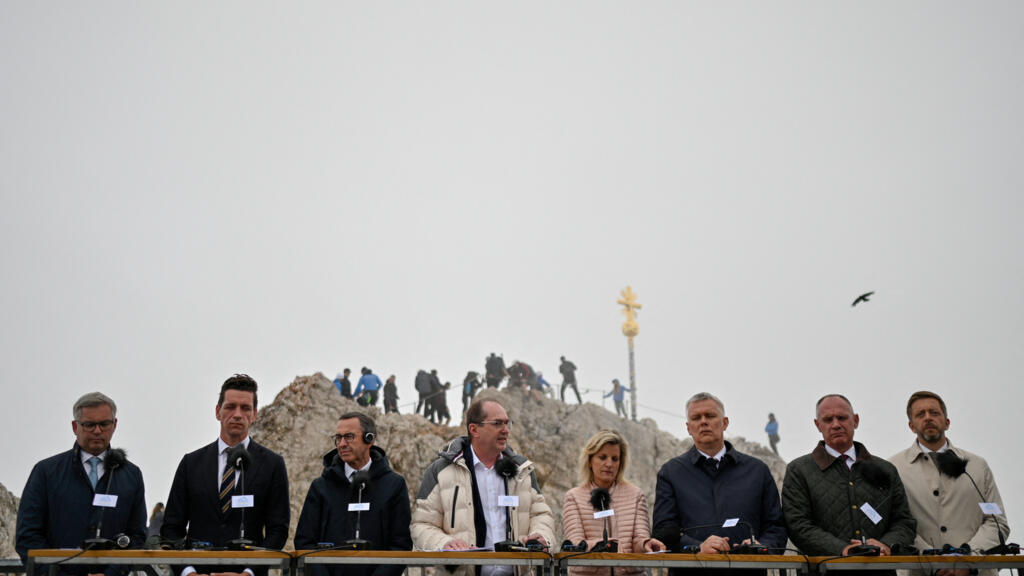Stricter Asylum Measures Agreed by European Ministers
On a significant day for European immigration policy, Germany's Interior Minister Alexander Dobrindt, along with five counterparts from various European nations, convened on the scenic Zugspitze mountain, Germany's highest peak, to discuss and agree upon a set of measures aimed at tightening asylum regulations across the bloc. This meeting was characterized by a strong commitment to reforming existing asylum processes and addressing the ongoing challenges posed by illegal migration.
During the discussions, the ministers reached a consensus on several key initiatives, the most notable of which is the resumption of deportations to Afghanistan and Syria. This decision comes amid growing pressure on European countries to manage the influx of asylum seekers more effectively, as many nations continue to face increasing social tensions related to migration. The reinstatement of deportations signals a shift in policy, aiming to deter future asylum seekers while prioritizing the return of individuals whose claims for protection have been denied.
In addition to the deportation plans, the ministers also endorsed the idea of third-country asylum processing. This approach entails establishing secure processing centers in countries outside of Europe, where individuals seeking asylum can have their claims evaluated. The goal of this initiative is to reduce the burden on European nations while still providing humanitarian assistance to those in need. This strategy is seen as a crucial step in managing public perception and expectations regarding immigration and asylum policies.
Stronger border enforcement measures were another critical component of the meeting. The ministers emphasized the need for enhanced cooperation among European countries to monitor and control borders more effectively. This includes bolstering existing frameworks and utilizing technology to track illegal crossings and manage entry points more efficiently. The discussions reflect a collective acknowledgment that addressing border security is essential for safeguarding national interests and maintaining social harmony within the European Union.
The agreement reached at the Zugspitze summit highlights the urgency felt by European leaders to act decisively in response to the challenges of migration. As countries across the continent grapple with the complexities of integration and public sentiment regarding immigration policy, the ministers are attempting to strike a balance between humanitarian obligations and the realities of domestic pressures. The move towards stricter asylum measures has generated a mixed response, with some viewing it as a necessary step towards more orderly migration, while others express concern over the potential impact on vulnerable populations fleeing conflict and persecution.
This collaborative effort to reform asylum policies underscores the importance of unity in addressing migration challenges faced by Europe today. In a climate where divisions over immigration are prominent, the ministers' agreement may represent a significant turning point in the conversation about asylum, refugee status, and border security. As European nations prepare to implement these new measures, the focus will increasingly shift toward how these policies impact both the individuals affected and the broader societal implications across the continent.
Ultimately, the agreement reached among the interior ministers reflects a growing consensus on the need for more robust and coordinated responses to migration across the European Union. With these measures set to take effect, all eyes will be on how they are implemented and the subsequent effects on both asylum seekers and host countries in the coming months.












